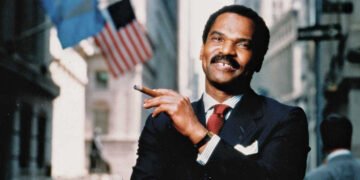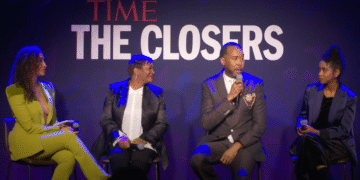From Progress to Pullback
Just a few years ago, in the wake of the 2020 uprisings and the murder of George Floyd, Target was among the loudest corporate voices pledging to invest in racial equity. With headlines promising over $2 billion in support of Black-owned brands, many in our community saw it as a step toward reparative economic justice — or at least a shift in the right direction.
But that promise is unraveling. In 2024, Target quietly began rolling back many of its diversity, equity, and inclusion (DEI) programs — rebranding “diversity” as “belonging,” cutting internal teams, and scaling down shelf space for Black-owned brands.
This year, the consequences hit hard.
Consumer trust is slipping. Sales are down. And now, many Black business owners who once celebrated their partnerships with Target are reconsidering their future with the retail giant.
Black Entrepreneurs Feeling the Burn
Entrepreneurs like Evana Oli, founder of Beautiful Curly Me, and Chantel Powell of Play Pits — both once featured as Target success stories — have reported sharp declines in visibility and sales as the company shifts focus.
“There was a time when you could walk into a Target and see Black-owned brands in their own featured displays,” said Powell in a recent interview. “Now, our products are being buried — or gone altogether.”
The fallout isn’t just anecdotal. Over 200,000 Black consumers and allies participated in the grassroots “Target Fast” boycott during Lent earlier this year, abstaining from Target purchases as a form of protest.
Despite the immense scale of this peaceful demonstration, Target remained largely silent, only issuing vague statements about “refocusing strategies” and “operational efficiencies.”
Civil Rights Leaders Call It Out
Pastor Jamal-Harrison Bryant, senior pastor of New Birth Missionary Baptist Church in Atlanta, is among the most vocal critics of Target’s shift. He’s organizing a nationwide protest at Target headquarters on May 25, the fifth anniversary of George Floyd’s death.
“We will not let corporations quietly profit off our pain and then abandon us when the news cycle moves on,” Bryant stated. “Black dollars matter. Black business matters. And so does our trust.”
The date is both symbolic and strategic. Bryant and fellow organizers hope to reignite accountability around the promises many companies made in the summer of 2020, which they say have since been ignored or reversed.
A Bigger Picture in Retail
Target’s move reflects a broader trend: corporate America is retreating from its post-2020 commitments to racial justice. From Amazon to Starbucks, many major companies have reduced their DEI teams or defunded internal equity programs in the past two years.
What makes Target’s case especially poignant is its early leadership in this space. It was among the first retailers to invest meaningfully in supplier diversity, inclusive marketing, and strategic partnerships with Black-owned businesses.
So when Target pulls back, the ripple effects are wide.
Also worth noting: this isn’t just about Black businesses. The company’s LGBTQ+ Pride collections have been scaled down too, drawing criticism from queer and ally communities. And internal morale is reportedly low, with some employees questioning the direction of the company’s culture.
Where Do We Go From Here?
As calls for transparency grow louder, Target’s leadership is beginning to re-engage. CEO Brian Cornell has met with some civil rights leaders and acknowledged the communication gap: “We haven’t done a good enough job explaining our values and where we stand,” he said in a recent press release.
But for many, words aren’t enough.
Black business owners are demanding actions: reinstated shelf space, renewed marketing partnerships, clearer DEI benchmarks, and meaningful collaboration, not just corporate statements.
In the meantime, many Black entrepreneurs are shifting strategy, investing more in direct-to-consumer channels, social selling, and partnerships with smaller retailers that still prioritize equity and representation.
The Bottom Line
Black business isn’t a trend — and our community is watching.
Target’s brand was built on accessibility, inclusion, and a friendly shopping experience for all. If it wants to retain its core audience — especially Black women, who comprise a significant portion of its customer base — it needs to address the trust it’s losing.
Because when it comes to equity, half-stepping is still falling short.





























